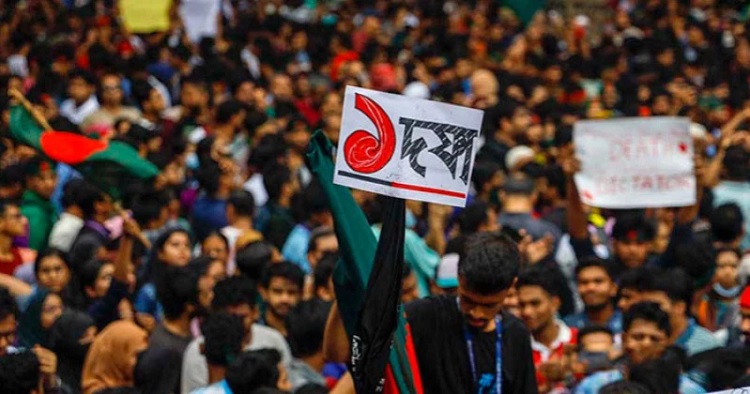2024 in review: Turning point in Bangladesh’s political and social landscape


The year 2024 proved to be a turning point in Bangladesh's political and social landscape, marked by mass uprising, the collapse of the Awami League government, and the establishment of an interim government. Here are the year's most significant developments:
Reinstatement of quota system
The quota system was initially introduced to promote equality for underprivileged communities by providing employment opportunities. However, with 56% of positions reserved and widespread corruption, many meritorious students were unable to secure government jobs despite performing well in exams. After prolonged protests, the Sheikh Hasina government abolished the quota system in 2018. Following the January 7, 2024 national election, the Hasina government reversed its decision, reinstating the previous quota system in government jobs. This reinstatement reignited protests as students, united under the banner of the Anti-Discrimination Student Movement, took to the streets demanding a permanent solution to the quota system. The demand for reforms spread nationwide, with students from universities and colleges across the country joining the movement, vowing to continue until their demand was met.
Quota movement becomes one-point demand
On August 3, the Anti-Discrimination Student Movement declared a one-point demand for the resignation of Sheikh Hasina and her cabinet. Nahid Islam, the movement’s coordinator, announced the demand at Central Shaheed Minar, calling for Hasina to step down. Nahid also declared plans for a non-cooperation movement across the country and urged security forces to support the people instead of the government.
General holiday declared to suppress movement
To counter the program called by the Anti-Discrimination Student Movement, the AL government announced a general holiday, shutting down all public and private institutions, banks, courts, and educational facilities, alongside imposing an indefinite curfew. Attacks by security forces and armed activists of the ruling Awami League on protesters in Dhaka and elsewhere resulted in hundreds of deaths.
March to Dhaka announced
Rejecting the curfew imposed by the government, on August 3, the Anti-Discrimination Student Movement announced a "March to Dhaka" program, along with continued demonstrations.
Thousands march toward Gonobhaban
On August 5, millions of participants in the "March to Dhaka" program began heading toward Gonobhaban. Army Chief General Waker-Uz-Zaman addressed the nation, confirming Sheikh Hasina’s resignation and the formation of an interim government. The jubilant crowd chanted slogans, “What happened, what happened, Sheikh Hasina has fled,” marking the conclusion of a 36-day movement for quota reform that led to the fall of the Awami League government.
Interim Government formed
On August 8, 2024, an interim government headed by Nobel laureate Muhammad Yunus was formed in Bangladesh after Sheikh Hasina fled to India. Following the dissolution of the National Parliament on August 6, the interim government is set to remain in power until a general election is held.
Ban on Jamaat rescinded
The interim government repealed the notification banning Jamaat-e-Islami and its student wing Islami Chhatra Shibir, stating no evidence linked the organizations or their affiliates to acts of violence or terrorism.
Ansar protests
Lieutenant General (retd) Jahangir Alam Chowdhury assumed the role of the second Home Affairs Adviser under the interim government. His tenure began amid Ansar protests and numerous crises. Multiple meetings were held to address Ansar members' grievances, eventually resolving the crisis.
Initiatives for police reform
After nearly two months, the government formed a Police Reform Commission led by former Secretary Safar Raj Hossain. The commission included experts from various sectors, including retired police officials, university professors, and human rights activists.
Administrative disorder
The administration has been in disarray for over four and a half months. Issues like delayed promotions, transfers, and appointments under the previous government surfaced as significant points of contention by year-end. Proposed reforms created fresh tension and dissatisfaction among different administrative cadres.
Fire at Secretariat
On December 26, at 1:52 am, a fire broke out at the Secretariat building. Despite efforts by the on-site fire service unit, the blaze intensified, requiring 19 units to respond. The fire badly damaged floors in Building 7, housing several ministries, including Youth and Sports, Labor and Employment, Local Government, and Roads and Highways.
